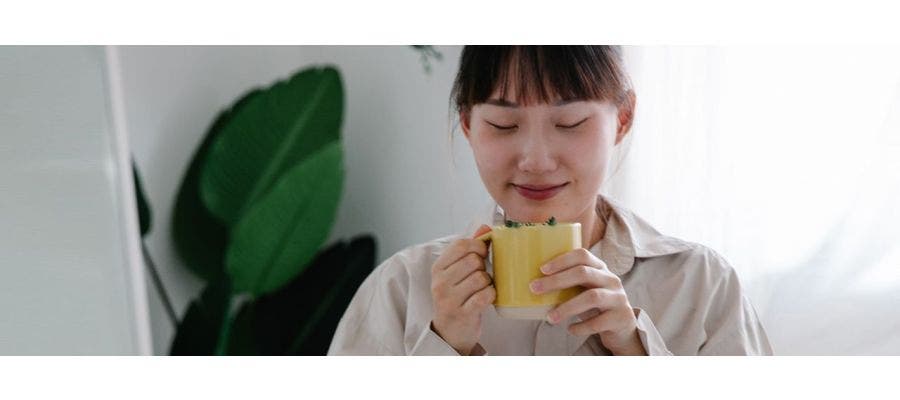
There’s a new type of hygiene in town, and it goes far beyond applying deodorant or combing your hair. Have you heard of sleep hygiene? It has become something of a buzzword in recent years. But, what does sleep hygiene mean exactly ... besides the fact that if you don't have it, your sleep probably stinks?
Simply put, sleep hygiene is the practice of incorporating healthy sleep habits – everything from your bedtime routine to your blue light exposure to the physical environment you sleep in. Your behavioral and environmental sleep habits can boost your sleep quality, leaving you falling asleep faster and staying asleep longer.
The great news is that practicing good sleep hygiene is as easy as implementing as many healthy habits as you can into your daily and nightly routines. Before long, you’ll improve not only your sleep quality, but your quality of life, too!
Good sleep hygiene vs poor sleep hygiene
Our behaviors and choices during the day have the ability to impact us during the night – that includes the food we eat, the caffeine or alcohol we drink, the entertainment we view and more. Practicing truly good sleep hygiene means setting yourself up proactively for restorative sleep at night from the moment you wake up in the morning.
- How do you know if you have good sleep hygiene or poor sleep hygiene? If any of the below sound familiar, it may be time to clean up your sleep hygiene act:
- You look at your smart phone or other devices before bed.
- You drink caffeine late in the day.
- You go to bed and wake up at different times.
- You’re often still working right up until you go to bed.
- Your bedroom isn’t completely dark, the temperature runs warm, and/or you are sleeping on toxic materials.
- You eat large meals or spicy foods right before bed.
- You rely on alcohol, prescription sleep medications, and/or cannabis in order to fall asleep.
- You keep your Wi-Fi router on and/or fall asleep with the TV on.
- You don’t exercise regularly or exercise too close to bedtime.
- You don’t have a nighttime ritual or routine i.e., skincare, supplements, drinking a cup of tea, journaling, reading, etc.
- You take long naps during the day and/or don’t feel rested when you wake up.
If any of these sound like you, keep reading to find out how you can improve your sleep hygiene for better sleep!
Is sleep hygiene the same for everyone?
Some things – like creating a non-toxic sleep space – are objectively better for everyone. But, in terms of lifestyle, the practice of good sleep hygiene is something that you can tailor to fit what feels best to you. Everyone has different work and family obligations, dietary concerns, and physical and mental health needs. You know your life and body best.
Just don’t let a busy schedule be the reason not to clean up your sleep! There are no rigid requirements or constraints when it comes to sleep hygiene, and it’s definitely not an “all or nothing” type of deal. There’s an abundance of healthy sleep habits to choose from and incorporating even a few can make a big difference in your overall well-being.
Your sleep hygiene checklist
Don’t know where to start when creating your sleep hygiene checklist? Happsy has you covered. Here’s what we recommend as the basics when starting out on improving your sleep hygiene. From here, feel free to add on more personalized routines or habits that work for you.
1. Maintain a regular sleep schedule – even on the weekends!
This means going to bed at the same time every night and waking up at the same time every day. Take it a step further and try to wake up with the sun. Exposing our eyes to natural sunlight first thing in the morning has been proven to help set circadian rhythms, reduce stress, boost alertness and more. It's OK to occasionally have a late night out, but the more consistent you can be, the better.
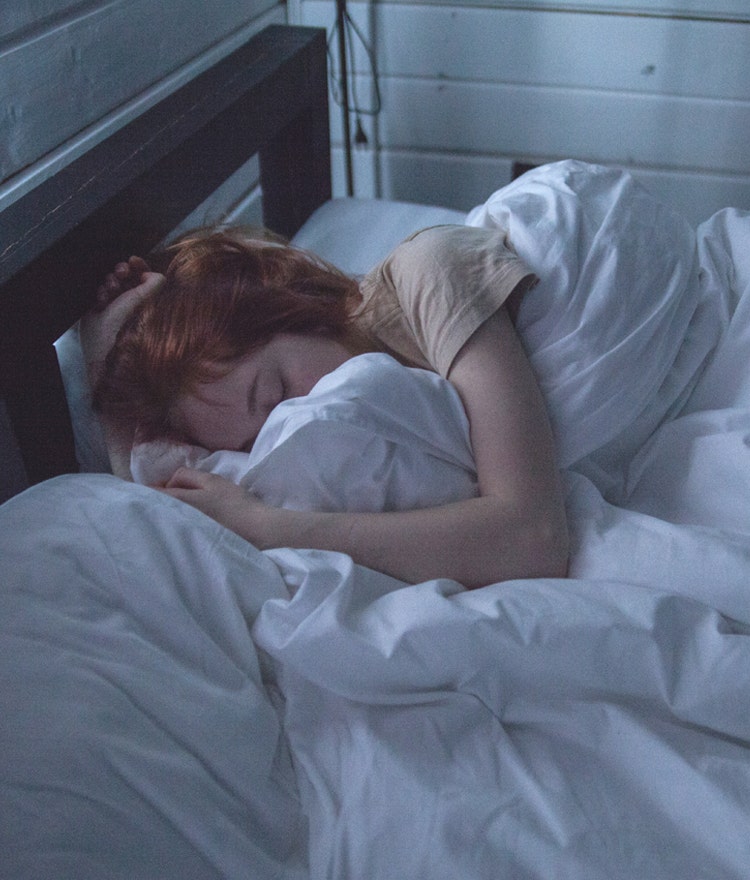

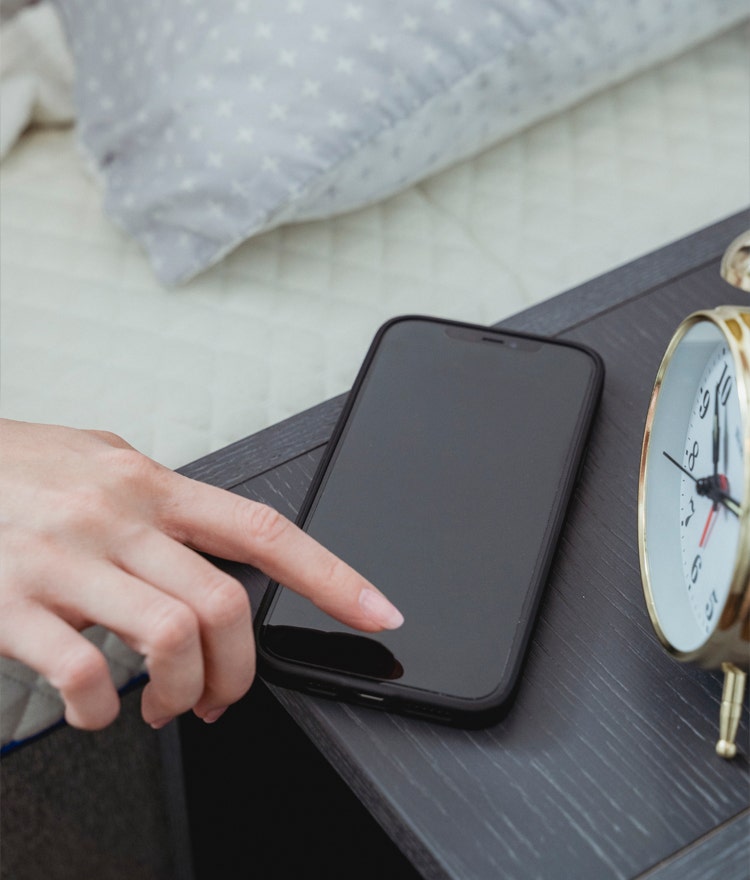

2. Turn off all devices and blue light exposure early.
Blue light is rampant today, and it is one of the leading causes of reduction in melatonin. Melatonin is produced by darkness and responsible for promoting sleep and setting circadian rhythms, and it’s necessary for the body and brain to properly detox during sleep. You can also try wearing blue light blocking glasses throughout the day and before bed to boost melatonin naturally. Either way, say goodnight to your devices a good hour or two before you go to bed.
3. Create a healthy sleep environment.
Whether you’re a hot sleeper or not, the best sleep is achieved in a dark, cool environment. Block all light from your bedroom and set your thermostat below 70 degrees Fahrenheit. Additionally, try turning off your Wi-Fi router and investing in an air purifier and certified organic mattress made from non-toxic materials, like Happsy’s organic bed-in-a-box. We can also help with organic sheets and pillows! A clean sleep space can make a world of difference.
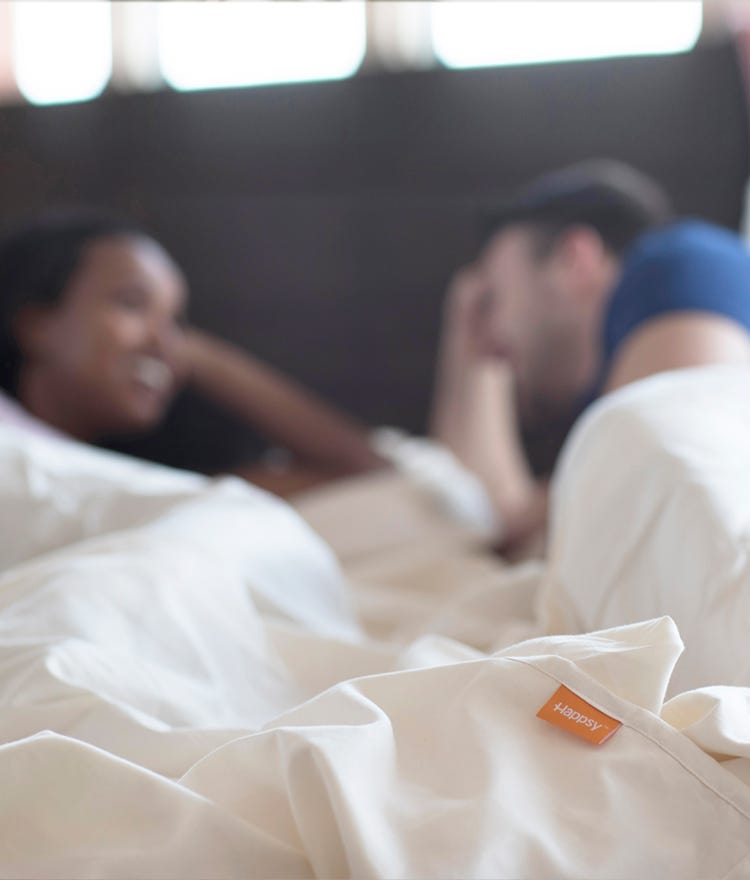

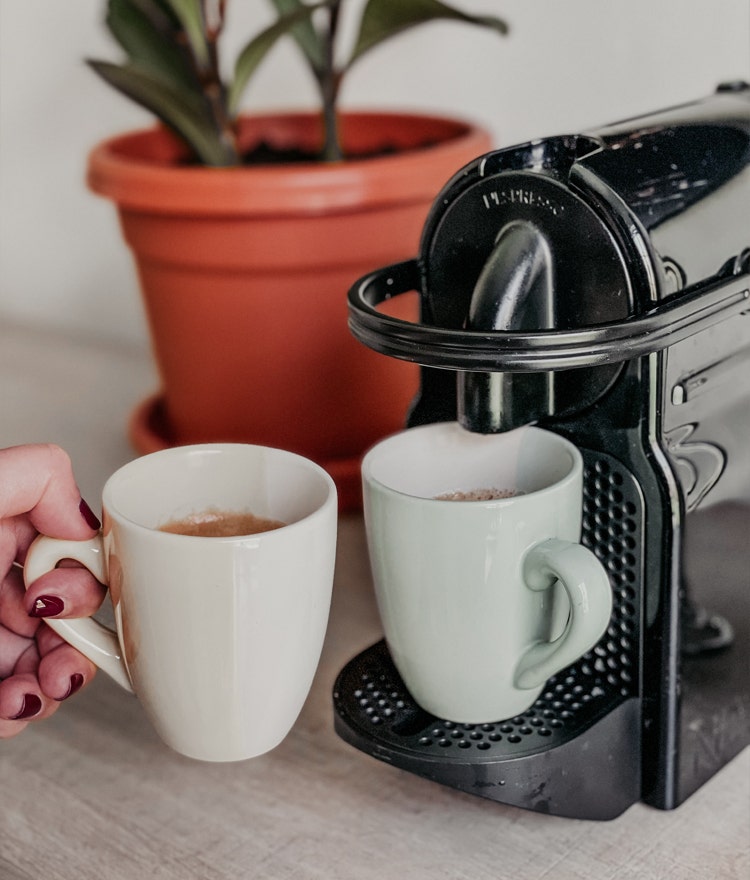

4. Limit your caffeine and alcohol intake.
We know, we know – this one sounds hard. But, trust us, sleep deprivation is much harder! Both caffiene and alcohol are substances that have the ability to harm your sleep quality. It is recommended to only drink caffeine in the morning and to not drink alcohol within three hours of your bedtime. You may think that alcohol, as a depressant, makes you sleepy, but the reality is that is disrupts your sleep quality big-time.
5. Do something to relax, unwind and destress.
Maybe that looks like a nightly bath, a luxurious skincare routine, a warm cup of tea, a good book or journaling. We have some helpful suggestions for yoga for sleep, if you’re interested. Whatever you can do to wind down, prepare your body for sleep, and transition to bedtime will do wonders for your sleep quality. Like anything, you need to train yourself to sleep better, and these calming activities help signal to your brain that it's time to prepare for sleep.
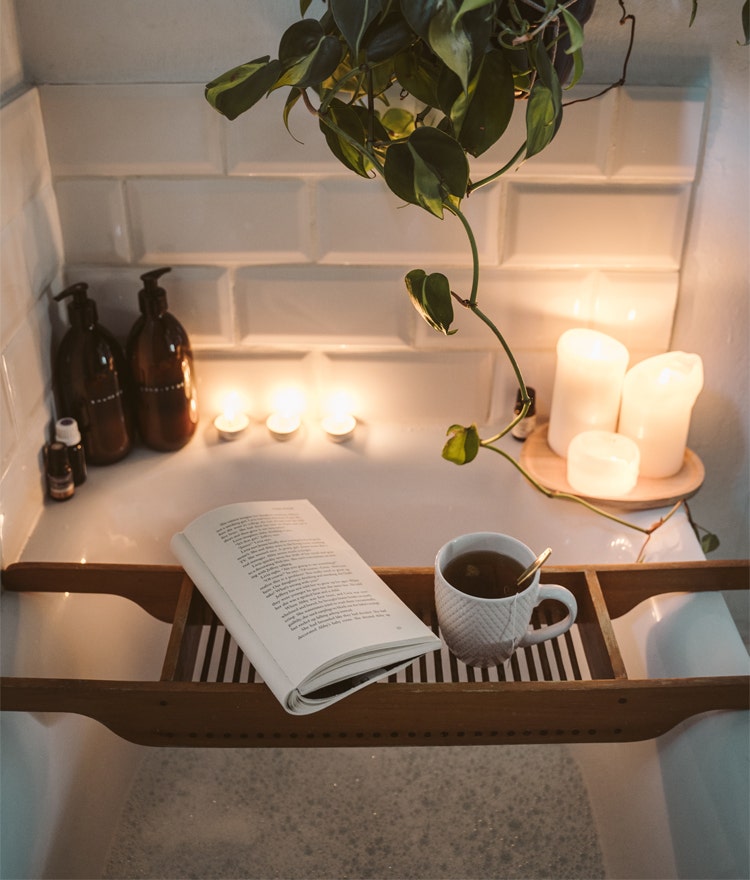

As you create your sleep hygiene checklist, Happsy is here to help. Detoxing your sleep environment and amping up the comfy factor with a naturally breathable, organic mattress really is one of the most important steps you can take in practicing better sleep hygiene. This is a small investment to make when it comes to years of restorative sleep.
Fortunately, if your sleep quality stinks, it’s never been easier to clean it up. What are you waiting for? Time to create your sleep hygiene checklist!
